Village of Northbrook Board of Trustees Committee of the Whole met Aug. 11.
Here is the minutes provided by the committee:
IMPORTANT NOTICE: VILLAGE BOARD MEETING - VIA WEBEX
VIDEO CONFERENCE CALL
1. ROLL CALL
| Attendee Name | Title | Status | Arrived |
| Sandra Frum | Village President | Present | |
| Kathryn Ciesla | Trustee | Present | |
| Bob Israel | Trustee | Present | |
| Muriel Collison | Trustee | Present | |
| Heather Ross | Trustee | Present | |
| Johannah Hebl | Trustee | Present | |
| Dan Pepoon | Trustee | Present |
A. Board of Trustees - Committee of the Whole - Jul 28, 2020 6:00 PM
RESULT: ACCEPTED [UNANIMOUS]
MOVER: Bob Israel, Trustee
SECONDER: Dan Pepoon, Trustee
AYES: Frum, Ciesla, Israel, Collison, Ross, Hebl, Pepoon
3. PUBLIC COMMENT TIME
President Frum stated that the emails that were received prior to tonight’s remote meeting related to Green Acres development and would be addressed at tonight’s Regular Board Meeting.
4. DISCUSSION TOPICS
A. Overtime Review
Village Manager Nahrstadt opened the virtual meeting stating that tonight’s meeting would include overtime review with information on budget numbers for Public Works, Police and Fire Departments. Manager Nahrstadt appreciates the time it took staff to put the numbers together.
Deputy Chief Financial Officer Iwona Petryszak began with a presentation that showed a summary report for overtime earned from January - June 2020. This report compared to the same time last year shows that overtime numbers are down 30%. Tonight’s report focuses on Public Works, Police Department and Fire Department. Historical overtime average from 2007-2019, as a percentage of salaries for the Police Department was 10% and for the Fire Department was 5.5%. Deputy CFO Petryszak reported that if the average increase for the Police Department is annualized, it is 3.35%.
Deputy Public Works Director Matt Morrison presented information for Public Works. Public Works is divided in to four divisions. Overtime is accrued in response to an emergency or providing services to residents. Overtime is defined as work that is performed outside of regular business hours, 7 a.m. - 3 p.m., Monday thru Friday. There are two categories for overtime. 1) Emergency overtime
includes events outside of Public Work’s control and includes snow and ice operations, water main breaks, and windstorms. 2) Planned Response or non-emergency overtime includes special events,
Fourth of July, and Family Dinner. The process for an overtime callout is to assess the special situation and make a determination. A crew is then called, if necessary, to address the situation in a timely fashion.
Trustee Hebl asked if the numbers were paid dollars or accrual. Deputy CFO Petryszak answered that the first slide summary showed overtime actually worked (accrued). It is the hours that are accrued and paid.
Fire Chief Andy Carlson reported that much of the Fire Department’s overtime is for maintaining a minimum level of staffing. They must be prepared for and respond to emergencies at all times. Chief Carlson displayed a slide that showed Fire Department staffing. Most of the staff are in the operational division, where most overtime comes from. Approximately 50% of overtime comes from minimum manning. Firefighters work three shifts with 24 hours on and 48 hours off. The Village has three fire stations, Stations 10, 11, and 12 with an ambulance and fire suppression vehicle at each.
Baseline potential for fires, medical emergencies, rescues, larger scale incidences is the same every day with some days being higher due to weather and special events. Staffing has remained the same since 2002. Each ambulance is staffed with two people. Each suppression vehicle is staffed with a minimum of three people. Northbrook firefighters are crossed trained. The Northbrook Fire Department uses a three person-firefighter crew for fires supplemented with a two-person ambulance crew whenever available.
The Fire Department responds to 6,700 calls per year. Each work shift has 22 people. Up to four people are allowed off on benefit leave each day per the CBA. When four people are off, the shift is reduced to the optimal number of eighteen. Eighteen people staff two engines, a ladder truck, three ambulances, and rescue squad and the shift commander. Sixteen persons is the absolute minimum for daily staffing. When the fire department drops below sixteen, overtime is called. Overtime is called for the length of time needed and the position that needs to be filled according to the written Department guidelines.
The administration monitors overtime daily. From January to June 2020, the largest portion of overtime was minimum manning at 46%. Firefighters and/or officers are hired back when manning is below 16. Special teams training is for the off duty portion of special teams training. Two people are on each team on one of each shift. Four people are on one of the State’s Urban & Rescue teams.
The individuals are highly specialized. These incidents are manpower intensive, high risk, low frequency events. Much of this overtime is reimbursed through MABAS. The FLSA (Fair Labor Standards Act) has special provisions for firefighter pay and overtime. When a person works over 204 hours in a 27-day period, the person receives up to six hours of additional pay. If the person takes time off in the 27 day period and does not work over 204 hours, they do not receive additional pay. The Fire Department has no control over this category of overtime.
Meetings and Training are for non-shift overtime. Included are fire and medical training, officer meetings, and CPR instruction. Shift Holdover includes firefighters who work past the end of their shift based on the timing of an emergency response or station changes. Holdovers are usually 15-30 minutes, but can be an hour or more. Callbacks are used to call personnel back in to staff reserve equipment during busy periods. This can be for multiple calls, large or extended incidents, mutual aid, and fire investigations. The Special Events number is low this year, as events have been cancelled due to COVID-19. Reimbursement from the MABAS includes special teams training and backfill, State Urban Search & Rescue training and deployments. The Fire Department received about $1500 from January - June 2020 and over $50,500 last fiscal year. An agreement exists with the Northbrook Rural Fire Protection District. Those payments go in the General Fund and are not deducted from overtime numbers.
In 2012, it was decided not to fill two positions due to retirements. In 2018 the two positions were filled and has decreased the overtime. In FY 18/19 there were on the job injuries including three long-term injuries and several retirements. Overtime has decreased the past two years.
Trustee Ciesla asked if the pay grade is looked at when someone is called in for overtime. Trustee Ciesla stated that by expanding the paid on call program, citizens would get a reduced rate rather than pay time and one-half using bargaining unit members Manager Nahrstadt will consult with the labor attorney.
Trustee Hebl stated that Fire Department overtime is down $100,000 during January-June. Fire Chief Carlson stated that all training had been cancelled or postponed due to the stay at home order.
Trustee Hebl asked the number of overtime hours per year per individual. She asked if those overtime hours are added on to a 24-hour work shift. The answer is that twenty-four hours is the normal work shift but it is possible that a firefighter could work the next shift for a total of 48 hours, but never more than 72 hours.
Police Chief Adkins offered a report on Police overtime with a slide with percentages. Police overtime is divided into two categories: circumstantial (daily operations) and established (governed by collective bargaining agreement and the law).
Established includes: Roll Call, FLSA, reimbursable events-private detail and traffic grants, court time, special events-Northbrook Days (partial reimbursement), and Fourth of July.
Circumstantial includes manpower shortage, extension of normal work shift, recall, supervisory duties, overweight truck enforcement, follow-up investigation equipment service, meetings, special department assignments, Community Relations programs and Task Force/Mutual Aid callouts.
Minimum manning is 8.2% and includes overtime for officers who are hired back to cover staffing shortages due to vacancies, sick leave, task force call-outs and training. The Police Department has two day shift teams, A and B, with eight officers on each team, for a total of sixteen officers. The night shift has eight officers for teams A and B, plus two tactical control officers on each team for a total of 20 officers. 5.3% is for court time overtime pay. This is when officers are required by subpoena or rule of court. 22.2% is for roll call prep. This includes eleven hours of monthly compensatory time for time worked for roll call assignments and other duties. 13.2% is for FLSA and includes six hours per quarter as compensation for regular hours worked over and above one hundred seventy one, within a 28-day period. Three percent is for shift holdover overtime pay. This includes an employee working 1/4 hour or more in excess of normal workday. 9.5% is for Regular and Specialty Recall. This may include an evidence technician, K-9 officer, critical incidents, something that extends the shift and is held over. 27.6% is for meetings and training. The Illinois
Training and Standards Board mandate officers to complete various trainings. The training takes place in house and includes crisis intervention, tactical critical care and de-escalation/defensive tactics. 1.2% is for special assignments and includes requests made by the Village Board, i.e. recent mask distribution. 3.4% is for private detail. Examples are the Fourth of July, Northbrook Days and Glenbrook North events. The department is reimbursed for the officers’ time. 0.1% is for Community Relations and includes National Night Out and Citizens’ Policy Academy. 6.3% is for NIPAS which includes Mobile Field Force and Emergency Services Team; NORTAF - includes homicides; ILEAS - the alarm system for mutual aid, when officers are called to incidents that require mutual aid or specialized task forces.
Trustee Ciesla asked if the Police Department has seen a decrease in overtime costs because of local adjudication. Police Chief Adkins answered that the department has mandated court calls. The number for traffic court versus the local adjudication would have to be looked at. Trustee Ciesla asked if we could expand local adjudication in a more meaningful way to keep officers closer to home. Police Chief Adkins answered that he will look into it.
Trustee Hebl stated from January-June FY 2020, overtime is down $170,000 in part due to the pandemic. In response, Chief Adkins explained that the staffing was down considerably for the department last year. He stated that reasons were the pandemic, training, hired back, less calls for service, and no special events. Trustee Hebl asked about the maximum number of overtime hours an officer can work. The Collective Bargaining Agreement states officers can only work four hours over an existing twelve-hour shift and never work more than three days in a row. The Chief states the four hours is usually from a holdover and rarely occurs every day.
President Frum thanked all of the participants and staff for putting the numbers together. The last review of each department was twenty years ago. President Frum proposes that a new review take place to see if the Village is allocating the right resources and right services. A review will determine which operations conducted in house could be contracted out. President Frum would like to hire consultants and that the consultants to begin with the Police Department. She stated it is part of the Village’s fiscal responsibility. The consultant will speak with the Board members and the Police Department and provide actionable recommendations. President Frum asked Trustee Hebl to be part of the interview selection team that will make a recommendation of a consultant to the Board.
Trustee Hebl believes it is time to relook at our services, how they are provided, and how they compare to other communities.
Trustee Ciesla wants the Manager to share the RFP before it is sent for Trustee review. Trustee Ciesla would like results before next year’s budgeting process and hopes the Board will move forward for this fiscal year. Manager Nahrstadt affirmed that he will seek Board input before the RFP is sent out. All of the Trustees were in support of President Frum’s recommendation.
A motion was made by Trustee Hebl and seconded by Trustee Ciesla to bring an RFP to the Board for approval before the proposal goes out to hire consultants to look at best practices and services. The motion passed unanimously.
5. REMARKS FOR THE GOOD OF THE ORDER
6. CLOSED SESSION
None
7. ADJOURN
On a motion made by Trustee Hebl and seconded by Trustee Israel the COW meeting was adjourned at 7:00 p.m.
Village of Northbrook, Illinois Page 6 Updated 8/26/2020 10:55 AM
http://northbrookil.iqm2.com/Citizens/FileOpen.aspx?Type=15&ID=1508&Inline=True

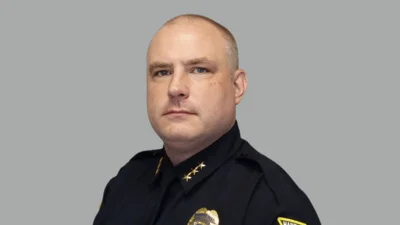
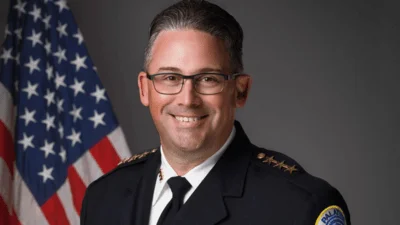
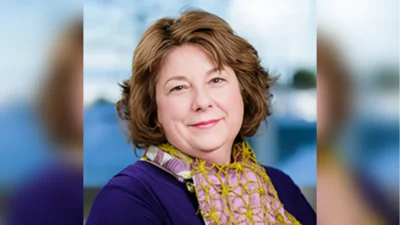
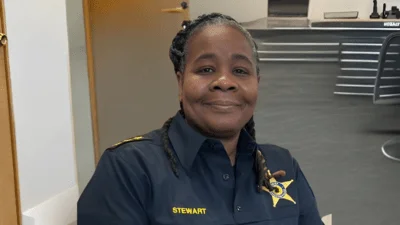
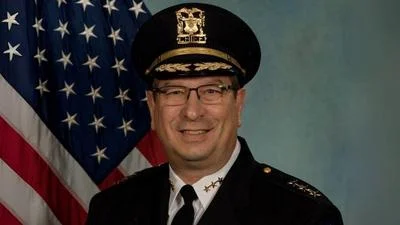
 Alerts Sign-up
Alerts Sign-up